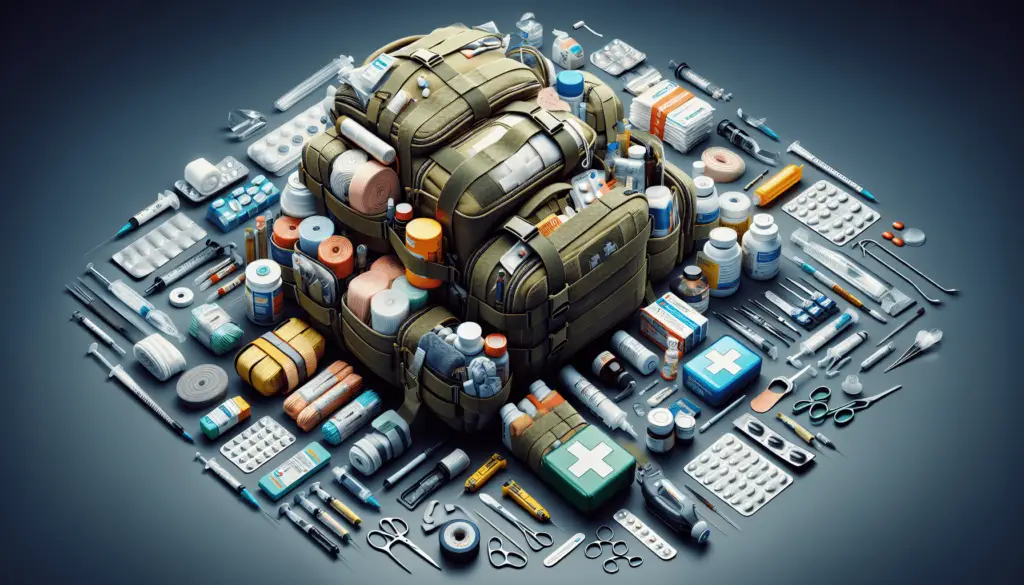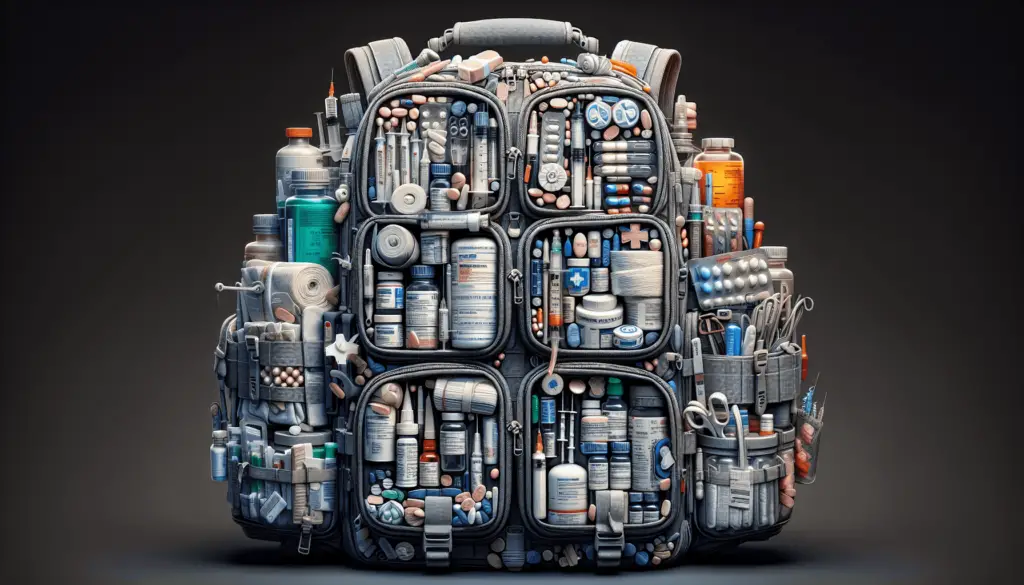Are you prepared to handle medical emergencies in remote locations? Whether you enjoy outdoor activities like hiking and camping or work in isolated areas, it’s crucial to have advanced medical skills to respond effectively in emergencies. In this article, you will learn how to develop the necessary skills to provide medical assistance when help is not readily available.

Importance of Advanced Medical Skills in Remote Areas
Having advanced medical skills in remote areas can mean the difference between life and death. In these situations, emergency services may not be easily accessible, and you may need to rely on your own expertise to stabilize a patient until help arrives. By developing these skills, you can not only save lives but also increase your confidence and preparedness in challenging situations.
Why Basic First Aid Training is Not Enough
While basic first aid training is essential, it may not be sufficient in remote emergencies where advanced medical care is required. Basic first aid typically covers how to treat minor injuries and stabilize a patient until professional help arrives. In remote areas, however, you may encounter more serious medical conditions or injuries that require advanced interventions.
Steps to Develop Advanced Medical Skills
Now that you understand the importance of advanced medical skills in remote emergencies, let’s look at the steps you can take to develop these skills effectively.
1. Pursue Advanced Medical Training Courses
One of the best ways to develop advanced medical skills is to enroll in specialized training courses. Look for courses that cover topics such as wilderness first aid, advanced life support, trauma care, and emergency medicine. These courses will give you the knowledge and hands-on experience needed to handle complex medical emergencies in remote locations.
2. Practice Regularly
Like any skill, medical skills require practice to maintain proficiency. Set aside time to practice medical scenarios regularly, either solo or with a group. Simulate different emergency situations, such as treating a snake bite or performing CPR, to keep your skills sharp and build muscle memory. The more you practice, the more confident and prepared you will be when a real emergency arises.
3. Stay Updated on Best Practices
Medical guidelines and procedures are constantly evolving as new research and technologies emerge. Stay updated on the latest best practices in emergency medicine by attending conferences, reading medical journals, and participating in continuing education courses. Being informed about current practices will ensure that you provide the best possible care to patients in remote emergencies.
Common Medical Emergencies in Remote Areas
In remote locations, you may encounter a variety of medical emergencies that require immediate attention. Being aware of these common emergencies and knowing how to respond can make a significant difference in patient outcomes.
1. Traumatic Injuries
Traumatic injuries, such as fractures, dislocations, and lacerations, are common in remote areas due to outdoor activities and accidents. Knowing how to stabilize these injuries and provide initial treatment can prevent further complications and help the patient recover more quickly.
2. Animal Bites and Envenomations
Encounters with wildlife can lead to animal bites or envenomations, which can be life-threatening if not treated promptly. Understanding how to identify venomous creatures, administer first aid, and seek medical assistance is crucial in remote areas where specialized care may be limited.
3. Heat-Related Illnesses
In hot climates or during strenuous outdoor activities, heat-related illnesses like heat exhaustion and heat stroke can occur. Recognizing the symptoms early and taking immediate steps to cool the patient down can prevent serious complications and save lives in remote settings.
4. Altitude Sickness
Altitude sickness is a common concern in high-altitude regions, where the reduced oxygen levels can cause headaches, nausea, and difficulty breathing. Knowing how to manage altitude sickness through gradual acclimatization and proper hydration can prevent more severe complications like high-altitude pulmonary edema or cerebral edema.
5. Cardiovascular Emergencies
Heart attacks, strokes, and other cardiovascular emergencies can happen anywhere, including remote areas. Being able to recognize the signs of a cardiovascular emergency and provide immediate care, such as CPR or administering aspirin, can improve the patient’s chances of survival until advanced medical help arrives.
Essential Medical Supplies for Remote Emergencies
In addition to advanced medical skills, having the right supplies on hand is essential for managing medical emergencies in remote areas. Below is a list of essential medical supplies to include in your emergency kit.
| Medical Supplies | Purpose |
|---|---|
| Trauma Kit | For treating traumatic injuries |
| Snake Bite Kit | For managing snake bites and envenomations |
| Heat-Reflective Blanket | For preventing hypothermia in cold environments |
| Tourniquet | For controlling severe bleeding |
| EpiPen | For treating severe allergic reactions |
| Portable Oxygen Tank | For providing oxygen therapy in respiratory emergencies |
Having these supplies readily available can help you respond effectively to a wide range of medical emergencies in remote locations. Make sure you are familiar with how to use each item in your kit and regularly check for expired supplies to ensure your kit is always ready for use.

Conclusion
Developing advanced medical skills for remote emergencies is a valuable investment in your safety and the well-being of others. By pursuing specialized training, regularly practicing your skills, and staying informed on best practices, you can be better prepared to handle a wide range of medical emergencies in isolated locations. Remember that preparation is key, and having the right skills and supplies can make a significant difference in saving lives and providing essential care when help is not readily available. Stay informed, stay prepared, and stay safe in your adventures in remote areas.
